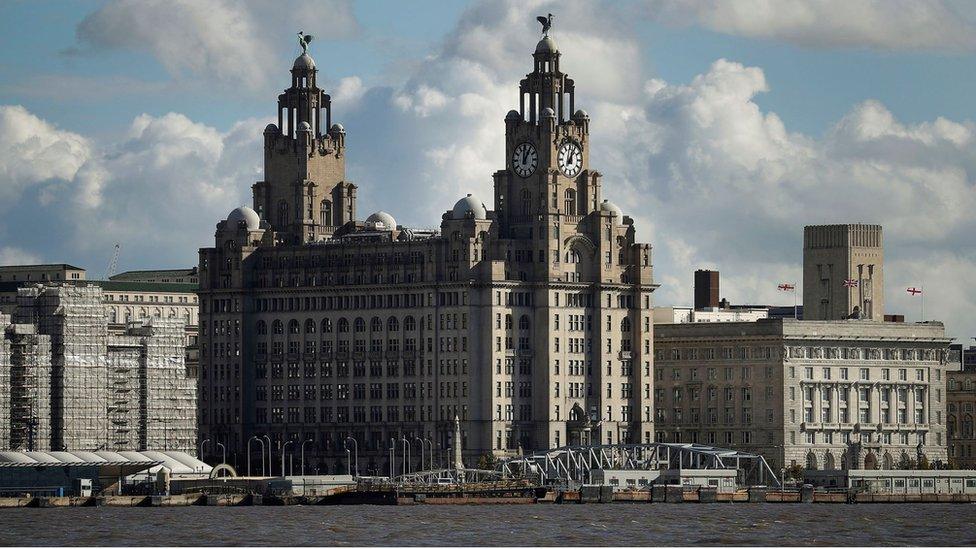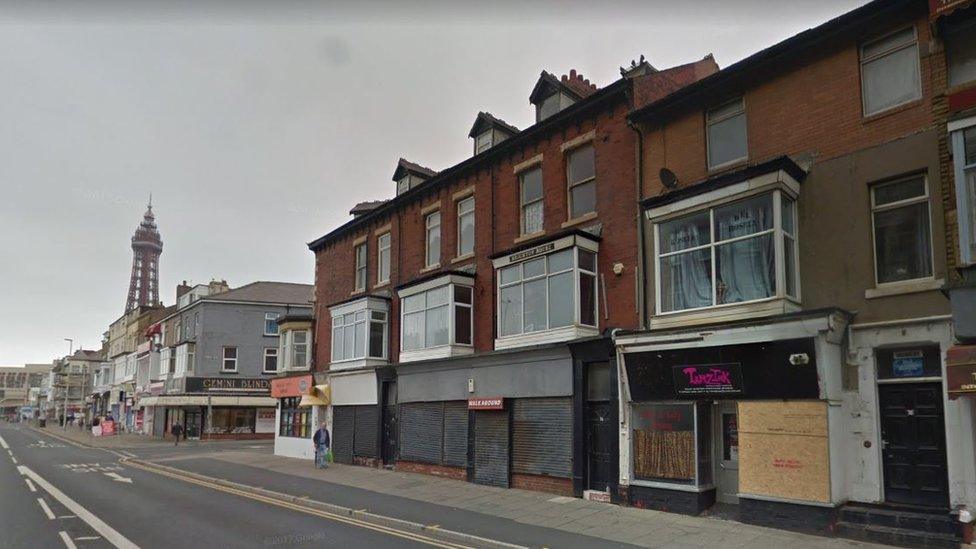Urgent action needed on Liverpool's health, report says
- Published

Liverpool's director of public health said radical and systemic change was needed
Urgent action is needed to prevent reduced life expectancy and poor health in Liverpool, a report has revealed.
Public Health Director, Professor Matt Ashton examined the health challenges for the city up to 2040.
He said without change residents could spend a quarter of their life in ill health, life expectancy for women could fall and the number of adults experiencing depression could double.
"The findings are a stark and clear call for urgent action," he added.
The BBC has contacted the government for a response.
Liverpool City Council leader Liam Robinson said the report was "a sobering read which lays bare the challenges we face in improving the health of our population".
Mr Ashton looked at the health of Liverpool's residents since 1984 and outlined what actions were needed.
The report said Liverpool was currently the third most deprived local authority area in England, with 63% of residents living in areas ranked among the most deprived in England, and 3 three in 10 children living in poverty.
'Vicious cycle'
Life expectancy is currently 76.1 years for men and 79.9 years for women. The national average is 79.0 years for men and 82.9 years for women, external.
Prof Ashton's report said without radical and systemic change by 2040:
Life expectancy of women would fall by one year, and they will be in good health for 4.1 fewer years than they are currently
There will be an increase in the number of people with major illness
The overall number of health conditions is projected to rise by 54% - with depression set to more than double
The number of people with major illnesses will be much more pronounced in the working age population
Key health issues facing children and young people will be mental health, obesity and child poverty
He outlined a number of recommendations for local and national government.

Prof Matt Ashton wants the government to introduce taxes on unhealthy fast food
He said Liverpool City Council should work to address challenges in housing, income, climate change, mental health and welfare, as well as improve healthcare services.
He also made three recommendations for the government, including a push to devolve health powers to improve services and the ability to set a minimum price for alcohol, a fast food tax and more investment in preventative services.
Mr Ashton said poor physical and mental health "shortens lives lived in good health and impacts not just on individuals but on those around them".
"It is demonstrated to have a major detrimental impact on the economy through reduced productivity and increased demand for public services, and is a vicious cycle that needs to be broken."
Liverpool City Council's opposition leader Carl Cashman said the report was a "wakeup call for the city, the council and the government".
The report will be discussed at a full council meeting next week.

Why not follow BBC North West on Facebook, external, X, external and Instagram, external? You can also send story ideas to northwest.newsonline@bbc.co.uk, external
Related topics
- Published28 December 2023

- Published26 September 2019
